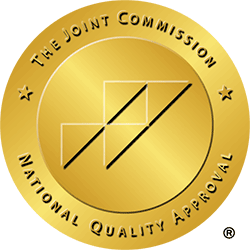
Methamphetamine, commonly known as meth, is a powerful and highly addictive stimulant that has a profound impact on the central nervous system. One of the drug’s most notable effects is the ability to keep users awake for extended periods, sometimes for days on end. This intense stimulation is a significant reason why people who use meth often become dependent on it, leading to a dangerous cycle of addiction. At BriteLife Recovery, we offer support and detox services to help individuals safely recover from methamphetamine addiction and break free from its harmful effects.
How Meth Affects the Brain
Meth causes an intense release of dopamine, a neurotransmitter that plays a key role in pleasure and reward, as well as in regulating mood, motivation, and sleep cycles. By artificially flooding the brain with dopamine, meth creates an extreme sense of euphoria, energy, and alertness. This spike in dopamine also disrupts the brain’s natural processes, which leads to extended periods of wakefulness.
Additionally, meth increases levels of norepinephrine, another neurotransmitter that helps regulate the body’s fight-or-flight response. Norepinephrine raises heart rate, blood pressure, and energy levels, all of which contribute to keeping users awake for prolonged periods. As a result, users experience hyperactivity and a lack of need for sleep, making meth a drug that is commonly associated with binge-using patterns.
Meth and Sleep Deprivation
The primary reason meth keeps people awake is because it overstimulates the brain, making it difficult to relax or feel tired. As meth suppresses the body’s natural signals for rest, people may stay awake for 24 hours or more. Some users may even remain awake for days at a time, a dangerous state known as a meth binge.
While users may feel an initial sense of invincibility and energy, prolonged sleep deprivation due to meth use can have severe consequences, including:
- Psychosis: Prolonged use of meth without sleep can result in meth-induced psychosis, causing hallucinations, paranoia, and delusions.
- Cognitive Impairment: The brain relies on sleep to function properly, and extended wakefulness can impair decision-making, memory, and focus.
- Physical Health Deterioration: Without rest, the body is unable to repair itself, leading to a weakened immune system, weight loss, and severe exhaustion.
The Dangers of Meth Withdrawal and Detox
Because meth deeply impacts the brain’s reward system, detoxing from meth can be a challenging process. During withdrawal, the brain’s dopamine levels plummet, leading to extreme fatigue, depression, irritability, and an overwhelming desire to sleep. Many people experience intense cravings for meth during this period as their brain struggles to regain balance.
At BriteLife Recovery, our detox program is designed to help individuals safely manage these withdrawal symptoms. Meth withdrawal can be physically and emotionally taxing, so it’s important to undergo detox in a medically supervised environment where professionals can provide support and care. Our team helps individuals through the withdrawal process, ensuring a safer and more comfortable detox experience.
How BriteLife Recovery Can Help
Recovering from meth addiction often requires more than just detox. At BriteLife Recovery, we offer comprehensive treatment programs that combine medical care, therapy, and holistic support to address the underlying causes of addiction and promote long-term recovery. Our individualized treatment plans include:
- Behavioral therapy to help clients develop healthy coping mechanisms.
- Group counseling to provide support and accountability from others in recovery.
- Holistic therapies, such as mindfulness and relaxation techniques, to support mental and physical healing.

If you or a loved one is struggling with meth addiction, BriteLife Recovery is here to help you regain control of your life and break free from the cycle of addiction.
SPEAK WITH AN ADDICTION SPECIALIST



